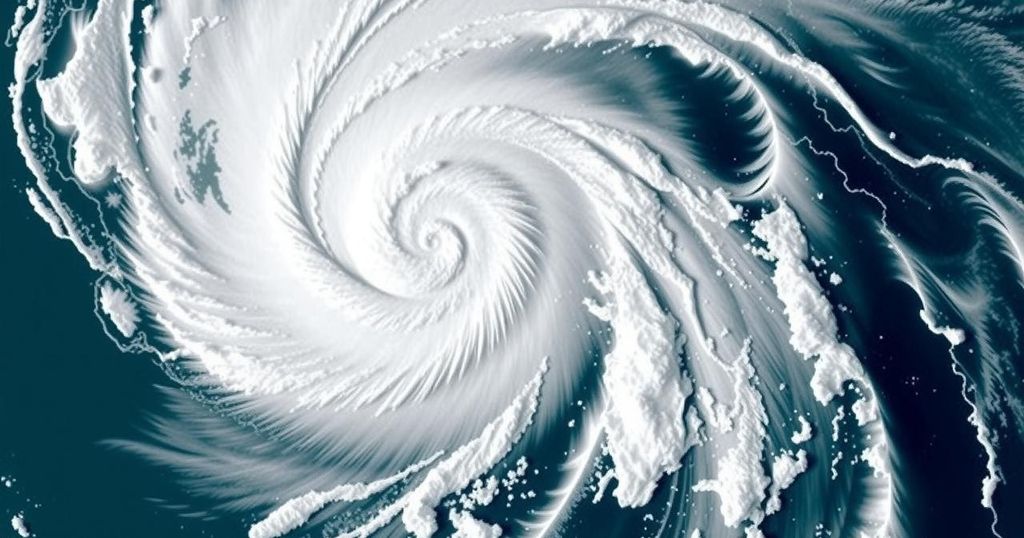Malawi Readies for Impact of Tropical Cyclone Chido as Alerts Intensify
Malawi is on high alert for Tropical Cyclone Chido, with predictions of heavy rain and flooding across southern regions. The cyclone, maintaining maximum winds of 250 km/h, is expected to impact 11 districts, following landfall in Mozambique. Authorities have issued evacuation advisories and are coordinating disaster responses as communities face compounding challenges from previous cyclones and ongoing food shortages.
Malawi is currently under a state of high alert as Tropical Cyclone Chido approaches, heralded by predictions from meteorological authorities regarding impending heavy rains and potential flooding. The cyclone, which was located northeast of Madagascar, is maintaining winds of up to 250 kilometers per hour and is anticipated to retain this intensity as it gradually moves westward at a speed of 22 kilometers per hour. It is projected to impact eleven districts in southern Malawi, including Mangochi, Machinga, and Blantyre, with landfall expected near Nacala, Mozambique, on Sunday.
In response to the impending cyclone, Chipiliro Khamula, spokesperson for the Department of Disaster Management Affairs, emphasized community preparedness by advising residents in vulnerable areas to evacuate to higher ground. Khamula stated, “We have alerted all [district] councils and activated all clusters for swift preparatory and anticipatory actions.” Efforts are being coordinated among various agencies, including the Malawi Defense Force, the Malawi Police Service, and the Malawi Red Cross Society, to deploy search-and-rescue teams effectively.
The threat posed by Cyclone Chido comes a year after Cyclone Freddy, which resulted in over 1,000 fatalities and severe agricultural losses in Southern Malawi. Malawi is additionally grappling with the adverse effects of El Niño, which has already caused drought and food shortages affecting over 5 million people in the country. Paul Turnbull, country director for the World Food Program in Malawi, remarked that they have food stocks available to assist those affected by both the ongoing El Niño conditions and the upcoming cyclone, stating, “If food is needed to respond to Cyclone Chido, WFP will be seeking support to cover these costs.”
The current situation underscores the critical need for preparedness and support in light of the cyclone’s anticipated impact on the already vulnerable population.
Tropical Cyclone Chido poses a severe threat to Malawi, primarily affecting southern regions already burdened by significant challenges, including the previous devastation from Cyclone Freddy and ongoing food shortages due to El Niño. Meteorological predictions indicate that Chido will generate substantial rainfall and risk flooding across numerous districts. This situation requires immediate and organized disaster response measures to mitigate potential losses and assist those impacted.
In conclusion, the impending arrival of Tropical Cyclone Chido necessitates urgent measures from both governmental and humanitarian organizations to safeguard affected populations in southern Malawi. The collaboration among various agencies emphasizes the priority of public safety and disaster preparedness. Continued vigilance and resource availability will be critical in addressing the needs of communities confronted with both the cyclone and the lingering effects of El Niño.
Original Source: www.voanews.com




Post Comment